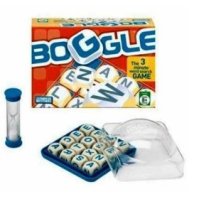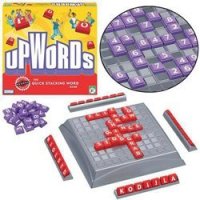A Phonics Board Game Can Be a Vital Tool For Teaching Language Skills
Phonics board game teaching tips
Maybe you’veseen the advertisements for “learn to read” systems, such as Hooked on Phonicsthat claim to teach children to read better in half the time, help kids who are struggling with reading in school and so on…
The truth is, they work. Teaching children phonics helps them understand the mechanics of the word and why sounds change the way they do, rather than expecting them to memorize all the spelling.
Related reviews on BoardgameBeast:
Phonics teaching is very effective, but you don’t need to spend a lot of money on a pre-packaged system; a lot can be done with a book that teaches the basics and daily reinforcement in the form of phonics board games.
There are some phonics board games on the market specifically geared toward learning phonics (Reading Rods, Python Path, etc.) but these generally have to be ordered from a specialty retailer, can be difficult to find and are often very age-specific so they may be grown out of quickly. (Editor’s note: Amazon carries several items by Reading Rods and one by Python Path. Follow the above links to check them out.)
Just about every word game ever manufactured can be used to reinforce phonics teaching; phonetic spellers will also find that they have an edge over their non-phonetic competition in such games, encouraging enjoyment with words and excellent spelling skills.
My favorite board game for phonics is the popular favorite Boggle by Parker Brothers. This game consists of 16 dice with letters on each side. The dice are placed in a tray with a tight plastic cover and then shaken, dropping dice randomly into the slots on the tray; players now have three minutes to come up with as many words as possible from the displayed letters on the dice before the time runs out.

To turn this into a phonics board game teaching tool, game rules can be changed slightly to allow an extra point for every identified phonogram in the discovered words.
Another great phonics board game is the slightly less well-known Upwords published by Hasbro. This game plays similar to Scrabble with tiles being set on the board to create words; the difference is that tiles may also be piled on top of one another to create new words and more bonus points are given the higher new tiles are piled.

Knowledge of phonics is a distinct advantage in this game, because it makes it easier to see what letters can be piled onto each word and of course bonus points could be given out for proper use and identification of phonograms in this game as well.
There are so many educational uses for board games, phonics is just one of the many subjects that can be taught and re-inforced effectively using these entertaining tools. By learning and using phonics in everyday life, children will learn to read well and be able to spell words correctly that they’ve never seen before.
Board games are a great way to keep the learning fun and really commit phonetic spelling to heart. Once children have a good grasp on their spelling skills, you may be surprised how much more interest they might show in reading and writing as it becomes easier for them to do.
Send us other ideas for ways to use word games as a phonics board game.
We’ll publish your advice!